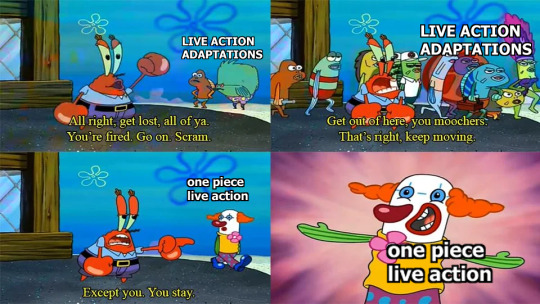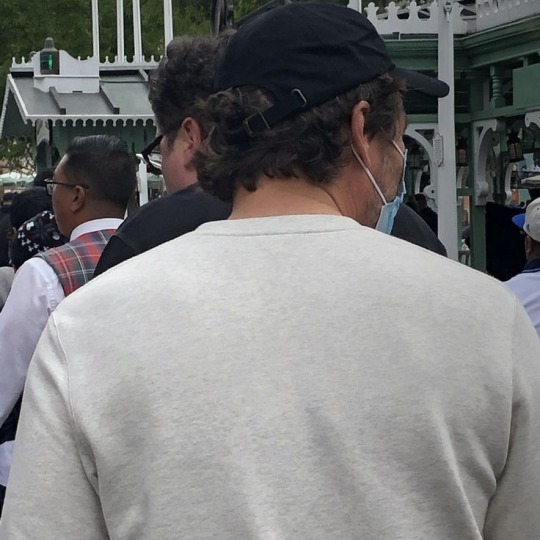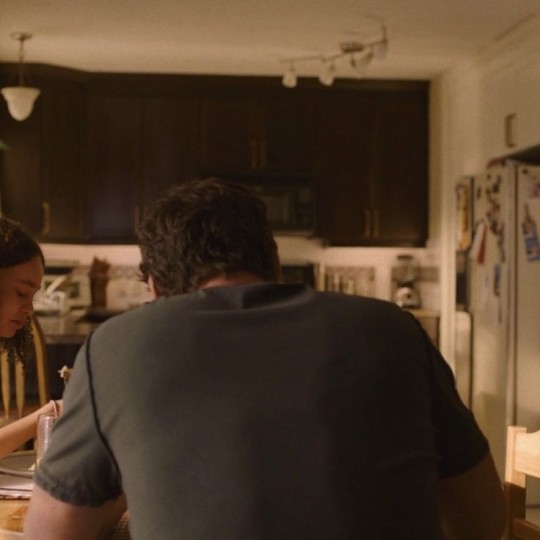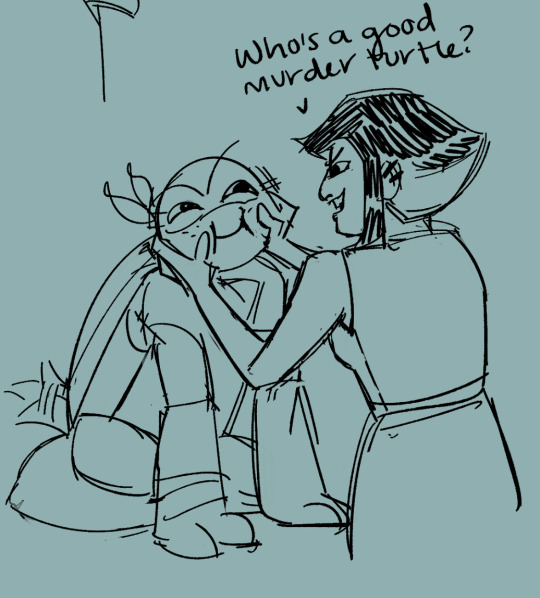#no respect for Disrespect
Explore tagged Tumblr posts
Text



As requested by @spooky-cowfish here's a gifset with Chris for everyone's viewing pleasure!
I'm not 100% happy with the quality, but I agree that this part of the video is totally gif worthy
#i am looking respectfully#and also enjoying all the fabulous hairflips in this video#once again please excuse the quality#but the request was too good to miss out on and i guess no one's made gifs yet sooo#i just decided to have fun making those#lord of the lost#lotl#chris harms#no respect for disrespect#my gifs
38 notes
·
View notes
Text
I feel the judgement from all the parents at bass practice as I wear my Lord of The Lost, No Respect for Disrespect shirt. Could it be cause the girl is giving the middle finger on the shirt? Probably, but deal with it. I'm cooler than your crotch goblin lol!
9 notes
·
View notes
Text
No Respect for Disrespect!
Share the Love of the Lost
LORD OF THE LOST - No Respect For Disrespect (Official Video) | Napalm R...
youtube
#metal#music#lord of the lost#chris harms#gothic#dark aesthetic#esc#esc 2023#eurovision 2023#eurovision song contest#lgbtqplus#love of the lost#no respect for Disrespect#Youtube
12 notes
·
View notes
Text

#when we thought the atla MIGHT be ok after opla but it turns out opla is just an exception#HS9D8FUIPJLK#annie rambles#opla#one piece#avatar the last airbender#ive heard mixed reviews about the atla live action but the consensus feels like the writers werent in tune with the source enough#where opla it really feels like the writers understand op at its core so thus were able to transform it#but maybe thats just me#80U9DSFPOJKL#i have so many thoughts on how much i liked opla i should make a separate post but like. for one not disrespecting source by#saying that the new take is ''more for adults" or whatever / all that nonsense#and again just respecting source material feels like a major difference here
2K notes
·
View notes
Text
Someone asked me to expand a little on a topic that was buried down in a big chain of reblogs, so I'm doing that here--it's about the use of the archaic "thee", "thou", "thy", etc. in LOTR and what it tells you about characters’ feelings for one another. (I am NOT an expert on this, so it's just what I've picked up over time!)
Like many (most?) modern English speakers, I grew up thinking of those old forms of 2nd person address as being extra formal. I think that's because my main exposure to them was in the Bible ("thou shall not...") and why wouldn't god, speaking as the ultimate authority, be using the most formal, official voice? But it turns out that for a huge chunk of the history of the English language, "thee," "thou," and "thy" were actually the informal/casual alternatives to the formal "you", “your”, “yours”. Like tú v. usted in Spanish!
With that in mind, Tolkien was very intentional about when he peppered in a "thee" or a "thou" in his dialogue. It only happens a handful of times. Most of those are when a jerk is trying to make clear that someone else is beneath them by treating them informally. Denethor "thou"s Gandalf when he’s pissed at him. The Witch King calls Éowyn "thee" to cut her down verbally before he cuts her down physically. And the Mouth of Sauron calls Aragorn and Gandalf "thou" as a way to show them that he has the upper hand. (Big oops by all 3 of these guys!)
The other times are the opposite--it's when someone starts to use the informal/casual form as a way to show their feeling of affection for someone else. Galadriel goes with the formal "you" all through the company's days in Lórien, but by the time they leave she has really taken them to heart. So when she sends them a message via Gandalf early in the Two Towers, she uses "thee" and "thou" in her words to Aragorn, Legolas and Gimli because now they're valued friends and allies. And--this is the big one, folks, that was already alluded to in my previous post--Éowyn starts aggressively "thou"ing Aragorn when she is begging him to take her along as he prepares to ride out of Dunharrow. She is very intentionally trying to communicate her feelings to him in her choice of pronoun--an "I wouldn't be calling you "thee" if I didn't love you" kind of thing. And he is just as intentionally using "you" in every single one of his responses in order to gently establish a boundary with her without having to state outright that he doesn't reciprocate her feelings. It's not until much later when her engagement to Faramir is announced that Aragorn finally busts out "I have wished thee joy ever since I first saw thee". Because now it is safe to acknowledge a relationship of closeness and familiarity with her without the risk that it will be misinterpreted. He absolutely wants to have that close, familiar relationship, but he saved it for when he knew she could accept it on his terms without getting hurt.
So, you know, like all things language-based...Tolkien made very purposeful decisions in his word choices down to a bonkers level of detail. I didn’t know about this pronoun thing until I was a whole ass adult, but that’s the joy of dealing with Tolkien. I still discover new things like this almost every time I re-read.
#lord of the rings#lotr#tolkien#aragorn#éowyn#word nerd#respect and disrespect by choice of pronoun#thee and thou vs you#aragorn found the absolute most passive way to say ‘not interested’
2K notes
·
View notes
Text

the fact that this is real is beyond horrifying
#the fact that they’re trying to frame this as being respectful is MENTAL#he did not unalive himself he killed himself because he was suffering from mental health issues and it’s awful and to try and make that#statement more easily digestible or cutisy is so disrespectful and does nothing to help people suffering#we need to actually talk about mental health issues not just use stupid tiktok buzzwords#suicide should make you feel uncomfortable its an uncomfortable topic but we need to live with that uncomfortability#we can’t just cover everything up and make ourselves feel comfortable all the time#we’re not going to accomplish anything that way and we’re just going to make people who are suffering feel more isolated#mari.txt#kurt cobain#nirvana#suicide mention/#yeah i’m using a trigger warning because that’s actually helpful#replacing words isn’t
527 notes
·
View notes
Text
I’d like to be clear to new followers that I’m not vegan? My fish cruelty post has moved into vegetarian/vegan circles and I’m getting a bunch of new followers so I don’t want someone getting pissed later because I post about what I eat.
I grew up on a farm, I believe that humans are interconnected in the food chain with other plants and animals. I believe we have a duty to reduce any undue suffering and allow any animal in our care to thrive, but I also believe that to eat an animal you raised with care is part of the food chain and eating it without waste is respect.
These are my beliefs and choices and I’m not knocking anyone else’s, but I’d like for it not to become a hot button later.
#ramblies#I also think if a flock of chickens is treated well it’s so disrespectful to waste eggs they lay#the chicken will lay regardless of a rooster being present and tossing the egg is so wasteful in my eyes#I had a vegan in my nutrition class insist that it was cruel to eat eggs for that reason#and I’m fully against factory farms but I get eggs from backyard chickens who never get fertilized#so it’s a very odd sticking point to me but I respect that it’s a choice people make
408 notes
·
View notes
Text
What finally pushes Wei Wuxian into a qi deviation isn’t the fact that Jiang Cheng showed up to hate-crime him and Lan Wangji, but the fact that Wei Wuxian showed up with the best of intentions—informing his dead guardians of his intentions to marry—just to be goaded into attacking their son in front of their tablets, the highest form of disrespect he could’ve performed in front of them. That Jiang Cheng could drag him down to such a level as to engage in something so disrespectful when Wei Wuxian showed up specifically to pay his respects is why it should not surprise anyone that Wei Wuxian’s last thoughts on Lotus Pier is that he wants to leave and never return:
It was only proper to show respect for the deceased. After all, they were at an ancestral hall.
...
Jiang Cheng was exactly who Wei WuXian had wanted to avoid; the last person he wanted to be seen by. Now that Jiang Cheng had found him, he knew he probably couldn’t escape fast enough without having harsh words flung his way. Wei WuXian didn’t want to start any unnecessary conflict, so he said, “I didn’t bring HanGuang-Jun anywhere that contained the Lotus Pier’s secrets. I’m just here to offer a few incense sticks to Uncle Jiang and Madam Yu. We are just leaving.”
—Chapt. 87: Core (Part 9), boat-full-of-lotus-pods
He turned to Jiang Cheng and said, “Jiang Cheng, listen to yourself. Do you even hear what you’re saying? Don’t forget who you are. You’re the leader of a sect. To insult a fellow cultivator from one of the Four Great Sects in front of Uncle Jiang and everyone’s memorial tablets. Where are your manners?”
...
All three of them had weapons out in front of the ancestral hall now. Jiang Cheng’s eyes were bloodshot as he snarled, “Fine! If you want a fight, then let’s fight! You think I’m afraid of you two?!” But just a few strikes later, Wei WuXian remembered, startled, that they stood before the ancestral hall of the Yunmeng Jiang Sect. He had only just knelt and prayed in front of Uncle Jiang and Madam Yu for their protection a few moments ago. And now he was attacking their son with Lan WangJi right under their nose! As if a bucket of cold water had just been dumped over him, suddenly, spots appeared in front of Wei WuXian’s eyes and his vision darkened.
...
Wei WuXian did not answer him. Instead, he said, “Lan Zhan...... Let’s go.” Immediately. And never come back.
—Chapt. 88: Core (Part 10), boat-full-of-lotus-pods
Tellingly enough, Jiang Cheng does not hold the same sense of shame in the fact that he instigated a physical fight in the resting place of his ancestors nor that his intentions weren't to maintain decorum when he followed wangxian into the ancestral hall to begin with. In fact, he is fueled by rage to the point of irrationality before he even steps foot into the ancestral hall, so much so that he cannot even accept wangxian disengaging from the fight and attempting to leave on their own:
All the signs pointed to the same conclusion—there was now something more between Wei WuXian and Lan WangJi. Unable to make himself turn away or step forward to speak to them, Jiang Cheng had concealed himself and followed after them, reinterpreting their every exchange and gesture through a coloured lens. Feelings of disbelief, strangeness, and slight, mild disgust had momentarily been enough to overcome Jiang Cheng’s hatred. It was only when Wei WuXian had brought Lan WangJi into the ancestral hall that Jiang Cheng’s anger reawakened. The repressed, overwhelming rage consumed his rationality and manners.
...
Lan WangJi harbored no more desire to continue the fight with Jiang Cheng. Wordlessly, he pulled Wei WuXian onto his back and turned to leave. Jiang Cheng was plagued by alarm and suspicion. He was alarmed by the terrifying sight of blood suddenly oozing out of Wei WuXian’s qiqiao. Yet he was suspicious of whether the man was faking it for an excuse to run away. After all, it was a prank that Wei WuXian had pulled quite often in the past. At the sight of the two men leaving, Jiang Cheng called, “Stop!”
—Chapt. 88: Core (Part 10), boat-full-of-lotus-pods
#mdzs#jiang cheng#canon jiang cheng#human metas mxtx#it's actually funny in a sad sort of way how many times this section stresses#just how important and sacred the ancestral hall is#that it is a place of peace and tranquility that must be respected#just for fandom to come in and say that jc running loose at the mouth in front of his parents' tablet is A-ok#because being gay in front of dead people is the highest level of disrespect#higher than insulting your allies and respected individuals in front of those same dead people#higher than hate-criming someone#but hey what do i know? not like it's in the book how important this place is or whatever
241 notes
·
View notes
Text
i will personally never forgive yenpress for botching the translation because now it's impossible to find chuuya / dazai / yosano takes that do not start with "first off, mori sucks and he's a predator"
mori is the don of the port mafia and has committed several war crimes, but not those ones. yell at him and hate him for the severe psychological manipulation of yosano & for dazai joining the mafia n being his witness. you know, the things he did.
#cherri.txt#please please i just want to see chuuya takes that do not have to do with 'mori is the greatest evil in the bsd 'verse'#because he is Not.#and i genuinely do not think that asagiri would write a well-respected author who had a close relationship w irl yosano as a#child predator. that'd be so disrespectful and these are influential authors.#and i think that mori's character is Meant to be confusing and a little uncomfortable bc guess#what book got banned because of what it explored? vita sexualis! the book that mori's ability is named after!#hate my dude but for What He Did#bsd#bungou stray dogs#mori ougai
2K notes
·
View notes
Text
youtube
Aaaand it’s here!
#lord of the lost#lotl#no respect for disrespect#napalm records#time to search for familiar faces i guess!
28 notes
·
View notes
Text




*looking disrespectfully* god have mercy on me, I'm not that strong
#jose pedro balmaceda pascal#pedro pascal characters#pedro pascal fandom#pedro pascal#pedropascal#the last of us#the last of us hbo#tlou hbo#joel miller#joel tlou#tim rockford#2023 was the year this man got so damn broad#i'm looking in the most disrespectful and respectful way possible#god have mercy on me#and bless this hot man#softiedingo
739 notes
·
View notes
Text
JV needs to takes notes
@gridcheck02
#this is how to be a RESPECTFUL team principal#not whatever the hell J*mes did to Logan#Logan deserved respect#Logan did not deserve to have his team principal openly THIRSTING over another driver#logan sargeant#the level of disrespect he was given through all of this#he deserved more
153 notes
·
View notes
Text
one day fans will realize that treating real people like fictional characters and fictional characters like real people is, at the core of things, The Problem
#luke newton#nicola coughlan#polin#lukola#penelope featherington#colin bridgerton#bridgerton#the invasive speculation like you're doing meta analysis of a plotline and not REAL LIVES is deeply uncomfortable#people in real person shipping communities have to come to understand that they are not in fact a fan of the real people#you do not know and will never know the actuality of these celebrities you are a fan of#realize NOW that you are a fan of their PERSONAS and absolutely nothing else#and that the purpose of shipping is not 'oh they'll get together' (so i'm RIGHT) but instead 'i enjoy this dynamic'#the pressure of validation from people who owe you nothing is what makes fans upset#not real people's actions that harm no one#which means you hurt your own feelings and then spiral in circles about how you didn't get said validation#when you were never owed it and choose to put the onus of responsibility on others behaving how you want#and not placing the responsibility on YOURSELF to have reasonable expectations and respect the people you claim to stan#build the bridge and get over it#some of y'all mad disrespectful like these celebs don't straight up hate you for how you behave#as they are well within reason to do so
119 notes
·
View notes
Text

Hamato gremlins
#tmnt#tmnt 2012#tmnt fanart#oodle doodles#tmnt mikey#tmnt karai#karai#I never know how to tag karai#should I say oroku karai?#hamato karai?#what is right?#it all feels so disrespectful somehow#I don’t want to tag a million different karai tags tho#that’s embarrassing#but I want to be respectful#anyways yeah they hype each other up and she loves seeing him be a little evil#for fun#but then they also connect emotionally and they’re very attached and idk the LOVE each other and are siblings#idkdk you get it
902 notes
·
View notes
Note
how delusional can you be as if it's disrespecting

#messyr#ok? is there something wrong with how I cope in media bro#look- if this is about the whole aroace thing- I DO respect it- I'm cupio myself. But this is fiction-#realistically speaking there is no harm. they don't feel. they are NOT REAL DAWG#the community can cry about it but who are we really entertaining here lol#im probably missing smth but I try my best not to draw much intimacy or any seggsual stuff at all or that I keep it to myself or#private media#I'm just trying to enjoy things and Ik im not hurting nor disrespecting anyone. let's not make it a bigger problem- ight?
193 notes
·
View notes
Text
The gods in PJO are not godly enough, in my opinion
I will start this rant by saying that this is only one of my problems with the PJO series. I understand why Riordan has humanized them, I know this is a middle school age book series. But I am older and I want to make them freaky and strange and kind of eldritch. With little to no explanation as for my choices.
ZEUS. He is the Olympian king of the gods, god of the sky, weather, law and order, destiny and fate and kingship. He is the law, as any king is. Every word he says is godly law, every little order will be followed. He is the king. So, he is stone-faced, made of marble, with no expression other than thoughtfulness and severeness (even if he sometimes isn't). His eyes are pure lightning, the hurricanes that ravage the world and the gentlest of summer rains. Most days, when he speaks of future events, they tend to happen that way, if not overruled by a higher power. His very presence is the ozone layer being brought down, heavy, tiring mortals and demigods out quickly. He treads lightly, with steps like gentle patters of rain, but his every breath is thunder.
HERA. The goddess of marriage, women, the sky and the stars of heaven, and the Olympian queen of the gods. Marriage, despite her own being something less than aspiring, is sacred. Couples that marry are under her protection, she still blesses their marriages. She sky shifts with her emotions, getting darker and night starting to fall. Her himation worn over her head, the only garment visible, reflecting the sky above. Her eyes, two bright stars, seeing something more than human perception can begin to understand.
POSEIDON. Olympian god of the sea, earthquakes, floods, drought and horses. His body is not, just from the corner of the eye, made of muscle, bones and tendons. Water, swirling and moving in the shape of a man, the odd strand of algae. Then you turn and he is barely human, but not saltwater. The waves seek and tug at his heels whenever he walks along the beach. His eyes, oceanic tectonic plates crashing, sending tsunamis to devastate the world. The air around him is salty, sea air clinging to his skin. Algae appear in his wake, reeking of the sea.
DEMETER. Olympian goddess of agriculture, grain and bread who sustained mankind with the earth's rich bounty. In her wake, every step makes a grain sprout, growing tall and healthy, and nothing can take it down. The seasons are slowly blooming and booming in her presence, the spring more verdant, the summer hotter, autumn plentiful beyond measure and winter always frigid. From behind her ears sprout oats and barley, always young and vibrant green, crowning her in the coming bounty. Her eyes are the colour of wheat, and when the wind blows the shadows in her eyes move with it.
ARES. Olympian god of war, battlelust, courage and civil order. He is war, bloody and cruel, senseless, personified. His very presence makes fights break out, indignities and betrayals happen. He is an oppressive force that bring the bravery out of the people, along with all the hate. If he stays long enough in one place, even Olympus, war breaks out, be it civil or not. This is why he never stays in one place too long. He is luting for blood, but war had wearied him. He will not do the same mistake twice, even in war. His eyes are the open wounds of soldiers, bleeding, infected, dying skin and rotting meat.
ATHENA. Olympian goddess of wisdom and good counsel, war, the defence of towns, heroic endeavour, weaving, pottery and various other crafts. Every tapestry and pot and garment worked by hand that is not up to her godly standard shrivels and turns to ash in her presence, obliterated by her beyond-human perfectioned craft. Towns are instantly protected when she is there, good grace and godly favour. War, like Ares, follows her. It is not kinder, nor is it bearable. Calculated, cold, some would argue that her wars are crueler, sadistic. Eyes like garment fiber and shattered pots, blood covering them.
APOLLO. Olympian god of prophecy and oracles, music, song and poetry, archery, healing, plague and disease, and the protection of the young. The sun, a power passed on, burns under his skin. It is the worst in the summer months, when the sun is more preeminent. His music, lighting every room in shades of enticement, is otherworldly, his voice, be it in song or word, is a mastery of perfection. From his hands, a single touch can be salvation or sickness. His arrows, silver for his twin, always strike true, no matter the target. His presence brings prophecies and fates to light. The power of the sun is in his eyes.
ARTEMIS. Olympian goddess of hunting, the wilderness and wild animals. She was also a goddess of childbirth, and the protectress of the girl child up to the age of marriage. Around her sprout forests, wild and untainted, a world where humans could get lost in and never be found again. Wild animals prowl after her, protectors and friends of her hunters. When the night is darkest, a power inherited, her skin lights up, a moon to shine in the dark of the shadows. Her hunters, her girls, are protected and her wrath is painful and cruel, like her domains, and they are recognisable by their golden arrows.
HEPHAESTUS. Olympian god of fire, smiths, craftsmen, metalworking, stonemasonry and sculpture. Beneath his skin flames are visible, a moving part of him, like tattoos. Every piece of metal he works with, no matter how briefly, turns into beatiful and powerful tools, an art all of their own. His buildings are steady and everlasting, the stone protected by his touch. His eyes, the hammer hitting metal, are coloured in such a way that they resemble statue's eyes.
APHRODITE. Olympian goddess of love, beauty, pleasure and procreation. Born of sea foam and godly blood, the salt clings to her. Curls her hair and makes her glow, the power of the sea just under her perfect skin. Everyone finds something beautiful in the face of beauty. It is enchanting, a spell most can hardly exist. She is everything everyone could ever want, a goddess for everyone's taste. Yet her anger is born of the sea, a cruel and unforgiving sort of death. To make love dislike you is to lose it all in the blink of an eye. To disrespect a goddess means death.
HERMES. Olympian god of herds and flocks, travellers and hospitality, roads and trade, thievery and cunning, heralds and diplomacy, language and writing, athletic contests and gymnasiums, astronomy and astrology. He speaks in languages long lost, and his travel notes are written in queer glyphs and writing systems. Sheep like him, without doubt. The souls of humans clash and itch to follow him when he enters a room, beyond willing to be taken to the underworld. The stars illuminate his path, a road he knows by heart but they don't care. They will guide him, no matter what.
DIONYSUS. Olympian god of wine, vegetation, pleasure, festivity, madness and wild frenzy. Vines grow from his footsteps, water and seawater and nectar and any other drink turn to wine in his hand. Where he is, the frenzied, happy and drunk follow, a retinue of people that enjoy and enjoy and enjoy. There is nothing not to like at first glance, and only at first glance. When one looks closer, the insanity begins. It is like sparks in his eyes, a nonsensical word past his lips. When you look closer at the people, there is no happiness in the thaws of madness.
HESTIA. The virgin goddess of the hearth and the home. It does not make her kind, because the gods rarely are. It makes her steady, the fire in the home that keeps the chill away from making itself at home. The fire that lights the way back home, sacred in temples and to extinguish it is to forsake her favour. Homes she has blessed are cozy, full of love, of safety. It does not make them fireproof.
HADES. The king of the underworld and god of the dead. He, king over bones and lost memories. His wife, unnamable, his presence like the heavy hand of time on mortal shoulders. Bones and skulls and the wispy whisper of the lost are his retinue. Half decomposed corpses his servants and valets and butlers. His name, scorned, is never said but on the eve of the winter solstice, when death is the surest companion. His eyes, dark but brittle as bone, promise something any other god can't understand.
PERSEPHONE. Goddess queen of the underworld, wife of the god Hades. She was also the goddess of spring growth. Her presence brings with it the smell of the first flowers of spring, little by little making the world greener. But her steps are always silent, always just a little far from the ground. She is a queen, death is her and her husband's domain. Of course she is ghostly, terrifying. Her perfume is of freshly dug earth and autumnal rain, the weeps of widows and widowers, the death of the young and elderly. Her name is unspoken, a curse when invoked. You will not hear her name on Olympus, in mortal mouths. Kore, Despoena, her titles are safe. Her eye is not benevolent, when it's attention is captured.
#percy jackson#cezy's insanities#hoo#pjo#pjo hoo toa#pjo headcanon#headcanon#alternate universe#heroes of olympus#percy jackon and the olympians#greek gods#I will also add that this is pure fiction and character design on my part#I do not worship these gods and if I said anything disrespectful to you and your beliefs please tell me so I can correct the problem#and do please enjoy my little fuckery#and I know that Apollo and Artemis are not the gods of the sun and moon respectively but this is based on PJO so I've gone with what Riorda#has established in the canon and nothing more. Also so I can use the sun/moon parallel
131 notes
·
View notes